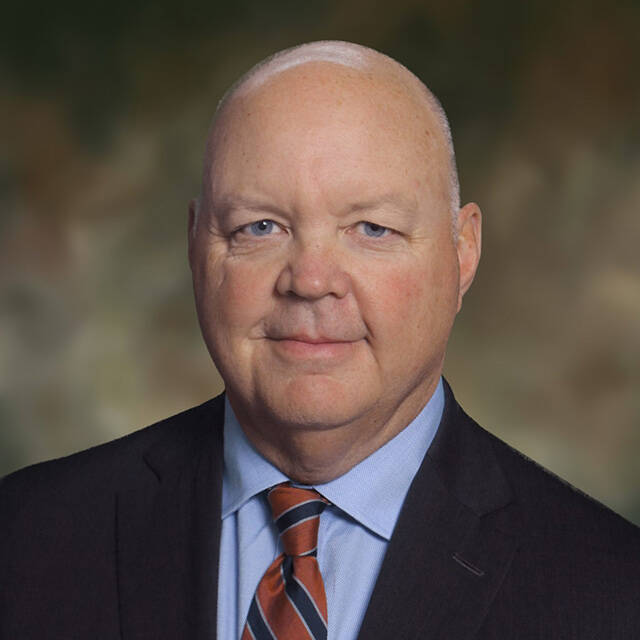Red Deer
Chamber urges city council to look harder at cutting costs

Red Deer District Chamber CEO, Scott Robinson
News release from the Red Deer District Chamber
Red Deer District Chamber Calls for Balanced Approach to 2025 City Budget
Following several meetings with City Administration, The Red Deer District Chamber has responded to the release of the draft City of Red Deer 2025 Budget with a call to immediately reduce tax supported Operational expenses by 3%. This recommendation is based on a balanced approach and one that acknowledges the significant amount of work The City must do in improving efficiency and managing costs.
“We have looked closely at The City’s financial position for 2025 and believe it is essential to consider further expense reductions alongside property tax increases.” says Red Deer District Chamber CEO, Scott Robinson. “The City of Red Deer faces a significant deficit, as revenues have fallen short of expenses over the past few years. While we agree that The City must address this imbalance and reduce its reliance on reserves and utility dividends to balance the budget, we believe that the full financial burden should not fall solely on taxpayers and property owners.”
Through a recent survey, our members shared the view that it’s crucial for The City to review its services and the costs associated with delivering them. 51.61% of respondents wanted to see The City implement alternative ways of doing business to reduce deficit.
When asked how a potential double digit tax increase would impact their businesses, 64.29% of respondents said that this would result in significantly increased operating costs.
Respondents felt that a double-digit tax increase would not result in a sustainable financial solution for The City of Red Deer, and that the overwhelmingly best option for The City to explore for the 2025 Budget and beyond, was cost cutting and efficiency measures being implemented within City departments.
“We believe a balanced approach is both reasonable and necessary. By reducing operational expenses by 3%, The City could save taxpayers approximately $9-10 Million, which would, in turn, make any necessary tax increase more manageable this budget year.” says Chamber CEO Scott Robinson.
The business community has been clear: a double-digit tax increase is not sustainable and would significantly impact the ability of some businesses to operate and thrive within the city.
Alberta
Province considering new Red Deer River reservoir east of Red Deer

Central Alberta reservoir study underway
Alberta’s government is moving forward a study to assess the feasibility of building a new reservoir on the Red Deer River to help support growing communities.
Demand for water from communities and businesses is increasing as more families, businesses and industries choose to live and work in central Alberta. The Red Deer River supplies water to hundreds of thousands of Albertans across the region and expanding water storage capacity could help reduce the risk of future droughts and meet the growing water demands.
Alberta’s government has now begun assessing the feasibility of building a potential new reservoir east of Red Deer near Ardley. A two-phase, multi-year study will explore the costs and value of constructing and operating the reservoir, and its impact on downstream communities, farmers and ranchers, and businesses.
“Central Alberta is a growing and thriving, and we are ensuring that it has the water it needs. This study will help us determine if an Ardley reservoir is effective and how it can be built and operated successfully to help us manage and maximize water storage for years to come.”
Reservoirs play a vital role in irrigation, drought management, water security and flood protection. Budget 2024 allocated $4.5 million to explore creating a new reservoir on the Red Deer River, at a damsite about 40 kilometres east of the City of Red Deer.
Work will begin on the scoping phase of the study as soon as possible. This will include reviewing available geotechnical and hydrotechnical information and exploring conceptual dam options. The scoping phase also includes meetings with municipalities and water users in the area to hear their views. This work is expected to be completed by December 2025.
“Reliable water infrastructure is essential for Alberta’s growing communities and industries. The Ardley reservoir feasibility study is a vital step toward ensuring long-term water security for central Alberta. As we assess this project’s potential, we’re supporting the sustainability of our economic corridors, agricultural operations and rural economy.”
“Water is essential to the agriculture industry and if the past few years are any indication, we need to prepare for dry conditions. A potential dam near Ardley could enhance water security and help farmers and ranchers continue to thrive in Alberta’s unpredictable conditions.”
Once that is complete, the feasibility study will then shift into a second phase, looking more closely at whether an effective new dam near Ardley can be safely designed and constructed, and the impact it may have on communities and the environment. Geotechnical and hydrotechnical investigations, cost-benefit analyses and an assessment of environmental and regulatory requirements will occur. The feasibility phase will also include gathering feedback directly from Albertans through public engagement. This work is expected to be completed by March 31, 2026.
Quick facts
- The Ardley dam scoping and feasibility study will be undertaken by Hatch Ltd., a Canadian multi-disciplinary professional services firm.
- Once the feasibility study is complete, government will assess the results and determine whether to pursue this project and proceed with detailed engineering and design work and regulatory approvals.
- Alberta’s government owns and operates several large reservoirs in the South Saskatchewan River Basin that help ensure sufficient water supply to meet demand from communities, irrigators and businesses, while also maintaining a healthy aquatic environment.
- Water stored at Gleniffer Lake, the reservoir created by Dickson Dam, helps supplement low winter flows along the Red Deer River and helps ensure an adequate water supply for Red Deer and Drumheller.
Related information
Red Deer
Judge upholds sanctions against Red Deer Catholic school trustee who opposed LGBT agenda

From LifeSiteNews
Monique LaGrange was ousted last December from the Red Deer Catholic Regional Schools’ board for comparing the LGBT agenda targeting children to brainwashing.
A Canadian judge ruled that a school board was justified to place harsh sanctions on a Catholic school trustee forced out of her position because she opposed extreme gender ideology and refused to undergo LGBT “sensitivity” training.
Justice Cheryl Arcand-Kootenay of the Court of King’s Bench of Alberta ruled Thursday that the Red Deer Catholic Regional Schools (RDCRS) Board’s sanctions placed against former trustee Monique LaGrange will stand.
LaGrange had vowed to fight the school board in court, and it remains to be seen if she can take any further actions after the decision by Judge Arcand-Kootenay.
The judge ruled that the RDCRS’s policies in place for all trustees, which the board contended were breached, were “logical, thorough, and grounded in the facts that were before the Board at the time of their deliberations.”
As reported by LifeSiteNews, the RDCRS board voted 3-1 last December to disqualify LaGrange after she compared the LGBT agenda targeting kids with that of “brainwashing” Nazi propaganda. As a result of being voted out, LaGrange later resigned from her position.
The former school board trustee initially came under fire in September 2023 when she posted an image showing kids in Nazi Germany waving swastika flags during a parade to social media, with the bottom of the post showing an image of kids waving LGBT “Pride” flags along with the text: “Brainwashing is brainwashing.”
After her post went viral, calls for her to step down grew from leftist Alberta politicians and others. This culminated in her removal as director of the Alberta Catholic School Trustees’ Association (ACSTA).
In September 2023, the RDCRS passed a motion to mandate that LaGrange undergo “LGBTQ+” and holocaust “sensitivity” training for her social media post.
LaGrange, however, refused to apologize for the meme or undergo “sensitivity” training.
She had argued that the RDCRS had no right to issue sanctions against her because they were not based on the Education Act or code of conduct. Arcand-Kootenay did not agree with her, saying code of conduct violations allow for multiple sanctions to be placed against those who violate them.
-

 Business1 day ago
Business1 day agoCarbon tax bureaucracy costs taxpayers $800 million
-

 Brownstone Institute1 day ago
Brownstone Institute1 day agoThe Most Devastating Report So Far
-

 ESG20 hours ago
ESG20 hours agoCan’t afford Rent? Groceries for your kids? Trudeau says suck it up and pay the tax!
-

 Daily Caller19 hours ago
Daily Caller19 hours agoLos Angeles Passes ‘Sanctuary City’ Ordinance In Wake Of Trump’s Deportation Plan
-

 John Stossel18 hours ago
John Stossel18 hours agoGreen Energy Needs Minerals, Yet America Blocks New Mines
-

 COVID-191 day ago
COVID-191 day agoDr. McCullough praises RFK Jr., urges him to pull COVID shots from the market
-

 Business2 days ago
Business2 days agoOttawa’s avalanche of spending hasn’t helped First Nations
-

 MAiD1 day ago
MAiD1 day agoOver 40% of people euthanized in Ontario lived in poorest parts of the province: government data






